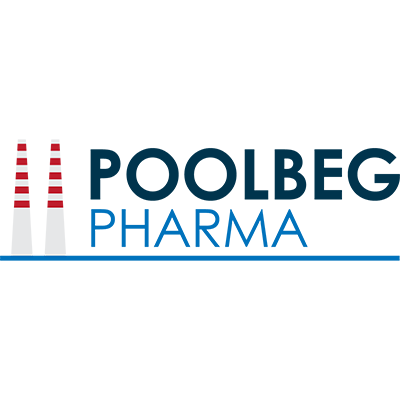Poolbeg Pharma plc (LON:POLB, OTCQB: POLBF), a leading infectious disease focused biopharmaceutical company, has announced the data readout from the bacterial lipopolysaccharide (‘LPS’) human challenge trial for POLB 001, a viral strain agnostic, small molecule immunomodulator being developed to address the unmet medical need arising from severe influenza and other acute inflammatory conditions. POLB 001 was shown to be safe and well tolerated and had a potent effect in systemic and localised inflammatory response in a dose dependent manner.
Key Highlights
· POLB 001 resulted in a highly significant reduction in p38 MAP kinase driven cytokines
· POLB 001 treatment exhibited a marked reduction in multiple markers of systemic and local inflammation compared with placebo
· Trial results demonstrate expected utility in severe influenza and other acute inflammatory conditions
About the LPS Challenge Trial
A total of 36 healthy volunteers aged 18 to 55 were enrolled and completed the trial. Subjects treated with POLB 001 exhibited a marked reduction in multiple markers of systemic and localised inflammation compared with placebo. p38 MAPK target engagement within circulating blood cells caused a substantial ablation of blood cytokines which are synonymous with cytokine release syndrome (‘CRS’) common in severe influenza, patients receiving CAR T cell treatment and other acute inflammatory conditions.
Systemic Inflammatory Response
The typical LPS-induced rise in plasma cytokine levels (TNF-α, IL-6, and IL-8) decreased between 57-81% across all cytokines in subjects treated with 70 mg or 150 mg POLB 001 (all highly significant P values <0.0003).
POLB 001 was shown to have the following dose dependent effects:
– blunted the LPS associated rise in heart rate across all dose groups (P<0.001)
– reduced body temperature and C-reactive protein (‘CRP’) levels, a clinically used nonspecific marker of inflammation
– target engagement causing a dose dependent reduction in p38 phosphorylation activation status in white blood cells
Localised Inflammatory Response
POLB 001 infiltration into inflamed tissues blocked localised cytokine release and reduced invasion of tissue damaging inflammatory cells as reflected by:
– complete ablation of tissue damaging neutrophil accumulation within the inflamed tissue
– LPS-induced rise in intermediate monocytes (inflammatory mediators) was substantially lower in subjects treated with 70 mg or 150 mg POLB 001
– a highly significant reduction in TNF-α in subjects treated with 150 mg POLB 001 of 65.1% (P<0.0009)
Jeremy Skillington, PhD, Chief Executive Officer, Poolbeg Pharma, said: “Together these data indicate POLB 001 reaches all cells and tissues where p38 MAPK is expressed, shutting down inflammation and silencing multiple aspects of overactivated inflammation unlike many anti-inflammatory drugs that target a single immune pathway.
POLB 001 blocks inflammation both locally and systemically and in a manner that suggests efficacy in treating life-threatening infections such as severe influenza or the CRS associated with other acute inflammatory conditions. POLB 001 has the potential to be an effective treatment in a wide range of inflammatory syndromes that present serious and life-threatening complications for patients. Due to our parallel clinical programs with POLB 001 we are particularly excited that these results support continued clinical investigation in both indications, and that we can share this positive data with potential Pharma partners ahead of schedule.”
Derek Gilroy, Ph.D, Professor of Immunology at University College London, said: “The COVID-19 pandemic, more than anything in recent memory, has shown how bereft we are of the medicines needed to treat infections, and stop our immune system from killing us. With such pandemics increasing in frequency, it’s only a matter of time before we face yet another crisis.
Poolbeg Pharma has risen to this challenge. POLB 001 has shown substantial promise in dampening the key players of harmful inflammation in both blood and tissues, acting where the immune system can do harm. These exciting data, and safety profile, support a role for POLB 001 beyond infectious diseases into treating a range of acute, aggressive immune responses.”









































